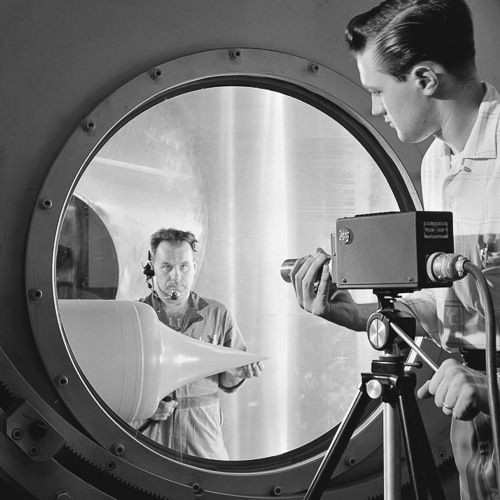
A team of ten broadcasters will demo a series of 5G-enabled technologies live at the International Broadcasting Convention (IBC) virtual showcase event.
September for the broadcast industry normally means a little bit of late European sun, the odd Dutch beer, and IBC, held at the Rai in Amsterdam. This year things are a little different, thanks to COVID-19, as it joins the global lineup of now-virtual events.
Figure 1:  End transmission: Broadcasting live has come a long way, but it's still difficult to get past lag and slow data. 5G could change that.
End transmission: Broadcasting live has come a long way, but it's still difficult to get past lag and slow data. 5G could change that.
With streaming services and traditional broadcasters both seeing a coronavirus boost, it's a critical time for the industry.
And with the democratization of content production, the gathering has broadened out beyond broadcasters and kit suppliers to include telecoms companies, social networks, the tech giants, handset makers and more.
This year, 5G is front and center. So much so, the first session of day one involved a presentation by the members of IBC's Accelerator Innovation program of 5G-enabled remote broadcast technology. The actual demo will take place on September 10.
Technical downsizing
There's no doubt 5G is potentially an exciting proposition for broadcasters. Low latency, speed and reliability all mean it's a robust contender to replace expensive satellite broadcasting setups for live broadcasting (which can also be hazardous to handle).
And as anyone with experience of broadcasting will tell you, it offers the ability to work at speed and file large files easily from the field.
The project team, led by the BBC, is made up of Al Jazeera Media Network, BT Sport, EBU, ITV, Olympic Broadcasting Service, SVT, TV2, ViacomCBS Networks International (VCNI) and Yle.
Aviwest, LiveU, Sony, Huawei, Mobile Viewpoint and NewTek are the vendors providing the kit, with additional support and technology expertise from the University of Strathclyde. The demo will run on Vodafone's network in Amsterdam, and EE in the UK.
"Our challenge earlier this year was to explore and understand the 'art of the possible' in terms of a 5G-powered broadcast system, based on current and future use cases and a series of production scenarios in the field," said Ian Wagdin, senior technology transfer manager at BBC R&D.
Separately, the team has been exploring using non-public or private 5G networks to secure additional bandwidth for other specific connected camera and production use cases.
The future is visual
While operators struggle to sell 5G handsets, with consumer uptake slow, and Apple only now preparing to launch a 5G iPhone, the platform has yet to meet the huge expectations set by operators.
For enterprise, it's a different story, although again uptake is patchy. But for broadcast – an industry that relies on huge packets of data going from point A to point B – the next-generation platform could be transformative.
Want to know more about 5G? Check out our dedicated 5G content channel here on Light Reading.
A report by the EBU in June 2020 found 5G could meet the distribution requirements of both public service and commercial broadcasters – but that there were significant structural barriers to be overcome.
This followed a call by the union for more broadcaster involvement in 5G, specifically the creation of 5G broadcast, with public service broadcasters offering free-to-air services to mobiles across 5G networks.
Earlier in 2019, the Digital TV Group (DTG) took part in the EBU "5G Deployments" project on media distribution and production.
WarnerMedia's Innovation Lab has been experimenting with both 5G and 5G handsets over the past year – and live broadcast of NBC Sports over Verizon 5G took place in December.
The broadcast industry, like telecoms, traditionally isn't at the forefront of technology adoption, lagging a few steps behind the big tech companies. Could 5G finally pull them into line?
Related posts:
— Fiona Graham, editorial director, Light Reading
About the Author(s)
You May Also Like












